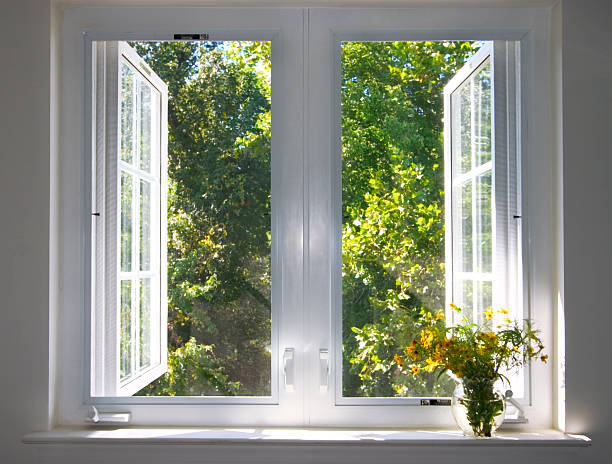Windows are an essential component of any home, contributing to energy efficiency, comfort, and aesthetics. However, like all home features, windows don’t last forever and will eventually need replacement. Knowing when to replace your windows can save you money, enhance your home’s value, and improve your living environment. This comprehensive guide outlines the signs that indicate it’s time to replace your windows and the benefits of doing so.
Signs It’s Time to Replace Your Windows
1. Drafts and Poor Insulation
One of the most apparent signs that your windows need replacing is the presence of drafts. If you feel cold air seeping through your windows during winter or warm air in the summer, it’s a clear indication that your windows are not effectively insulating your home. This issue causes discomfort and leads to higher energy bills as your heating and cooling systems work harder to maintain a consistent indoor temperature.
2. Difficulty Opening and Closing
Windows that are hard to open or close are more than just an annoyance — they can be a safety hazard. This issue can be caused by various factors, including warped frames, damaged hardware, or accumulated debris. Properly functioning windows are essential for ventilation and emergency escape routes.
3. Visible Damage or Decay
Visible damage such as cracks, chips, or decayed frames are significant signs that your windows need to be replaced. Damage can occur from prolonged exposure to harsh weather conditions or aging. Wooden windows are particularly susceptible to rot and decay if not properly maintained.
4. Condensation Between Glass Panes
Condensation or fogging between double or triple glass panes indicates that the seal has failed. This seal failure compromises the window’s insulating properties, leading to energy inefficiency. If you notice this issue, it’s a strong sign that replacement is necessary.
5. High Energy Bills
If you notice a sudden spike in your energy bills without a corresponding increase in usage, your windows might be to blame. Poorly insulated windows allow heat to escape during the winter and let heat in during the summer, making your HVAC system work overtime.
6. Noise Reduction
Modern windows are designed to reduce noise pollution significantly. If external noise is more noticeable inside your home, your windows may no longer provide adequate sound insulation. This can be particularly troubling in busy urban areas or near highways.
7. Water Damage and Leaks
Water stains, peeling paint, or mold growth around your windows are indicators of water leakage. Leaky windows can cause significant structural damage to your home if not addressed promptly. Replacing these windows can prevent further water damage and maintain the structural integrity of your home.
Benefits of Replacing Your Windows
Improved Energy Efficiency
New windows can drastically improve your home’s energy efficiency. Modern windows come with advanced features like double or triple glazing, low-E coatings, and insulated frames, all designed to reduce heat transfer and keep your home comfortable year-round.
Enhanced Comfort
Replacing old windows eliminates drafts and hot spots, creating a more comfortable indoor environment. Properly insulated windows maintain a consistent temperature throughout your home, enhancing overall comfort.
Increased Home Value
New windows are a valuable investment that can increase your home’s resale value. Potential buyers are likely to be attracted to the energy savings, improved comfort, and aesthetic appeal that new windows offer.
Better Aesthetics
New windows can significantly enhance the look of your home, both inside and out. With a wide variety of styles, colors, and finishes available, you can choose windows that complement your home’s architecture and design.
Enhanced Security
Modern windows are designed with advanced security features, including stronger locks and reinforced frames. This can help protect your home from break-ins and provide peace of mind.
Noise Reduction
New windows can reduce outside noise significantly, creating a quieter, more peaceful indoor environment. This is particularly beneficial if you live in a noisy area or near a busy street.
When to Schedule Window Replacement
The best time to replace windows is during the spring or fall when the weather is mild. Replacing windows in extreme weather conditions (either very hot or cold) can be challenging and affect the installation process. However, if your windows are severely damaged or causing significant energy loss, it’s best to replace them as soon as possible, regardless of the season.
Investing in New Windows
Recognizing the signs that indicate it’s time to replace your windows can prevent further damage to your home and improve your quality of life. If you’re experiencing drafts, difficulty operating your windows, visible damage, condensation between panes, high energy bills, excessive noise, or water leaks, it’s time to consider new windows. The benefits of replacing your windows — improved energy efficiency, increased home value, better aesthetics, enhanced security, and noise reduction — make this investment worthwhile.
For expert advice and quality window replacement services, consider Wallaby Windows. Our team of professionals can help you select the perfect windows for your home, ensuring a seamless installation process. Contact Wallaby Windows today for a free consultation and take the first step toward a more comfortable, energy-efficient home.



